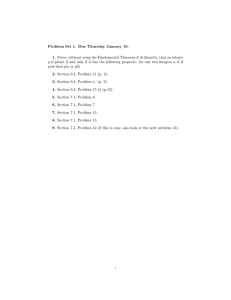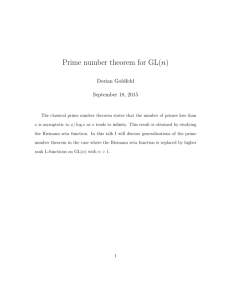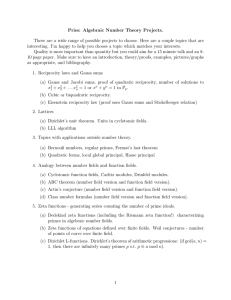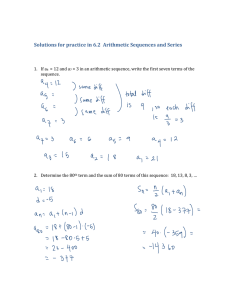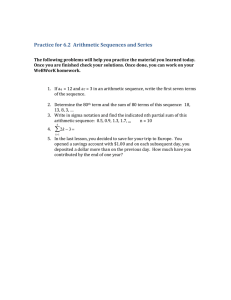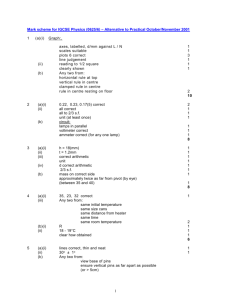MATH 605 Number Theory
advertisement
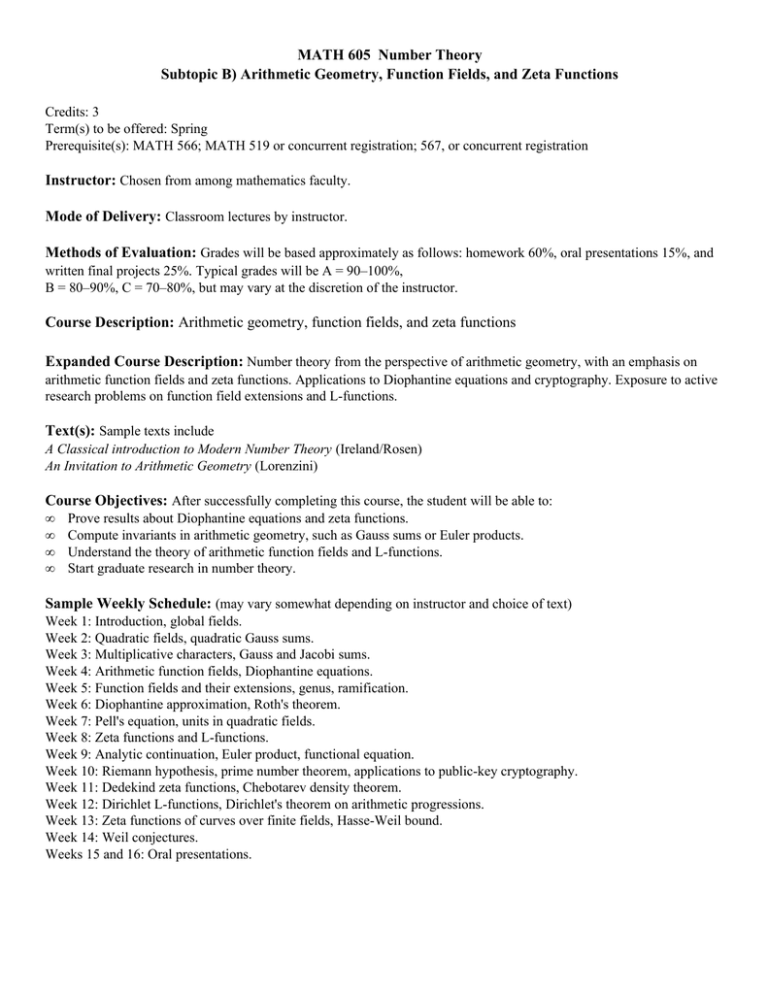
MATH 605 Number Theory Subtopic B) Arithmetic Geometry, Function Fields, and Zeta Functions Credits: 3 Term(s) to be offered: Spring Prerequisite(s): MATH 566; MATH 519 or concurrent registration; 567, or concurrent registration Instructor: Chosen from among mathematics faculty. Mode of Delivery: Classroom lectures by instructor. Methods of Evaluation: Grades will be based approximately as follows: homework 60%, oral presentations 15%, and written final projects 25%. Typical grades will be A = 90–100%, B = 80–90%, C = 70–80%, but may vary at the discretion of the instructor. Course Description: Arithmetic geometry, function fields, and zeta functions Expanded Course Description: Number theory from the perspective of arithmetic geometry, with an emphasis on arithmetic function fields and zeta functions. Applications to Diophantine equations and cryptography. Exposure to active research problems on function field extensions and L-functions. Text(s): Sample texts include A Classical introduction to Modern Number Theory (Ireland/Rosen) An Invitation to Arithmetic Geometry (Lorenzini) Course Objectives: After successfully completing this course, the student will be able to: • • • • Prove results about Diophantine equations and zeta functions. Compute invariants in arithmetic geometry, such as Gauss sums or Euler products. Understand the theory of arithmetic function fields and L-functions. Start graduate research in number theory. Sample Weekly Schedule: (may vary somewhat depending on instructor and choice of text) Week 1: Introduction, global fields. Week 2: Quadratic fields, quadratic Gauss sums. Week 3: Multiplicative characters, Gauss and Jacobi sums. Week 4: Arithmetic function fields, Diophantine equations. Week 5: Function fields and their extensions, genus, ramification. Week 6: Diophantine approximation, Roth's theorem. Week 7: Pell's equation, units in quadratic fields. Week 8: Zeta functions and L-functions. Week 9: Analytic continuation, Euler product, functional equation. Week 10: Riemann hypothesis, prime number theorem, applications to public-key cryptography. Week 11: Dedekind zeta functions, Chebotarev density theorem. Week 12: Dirichlet L-functions, Dirichlet's theorem on arithmetic progressions. Week 13: Zeta functions of curves over finite fields, Hasse-Weil bound. Week 14: Weil conjectures. Weeks 15 and 16: Oral presentations.
